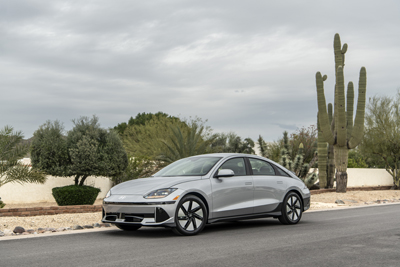The IRA requires the batteries in EVs sold in the U.S. to be sourced domestically to qualify for consumer tax credits, but the supply chain isn't there yet.
The Biden administration is discussing a temporary reprieve for automakers from stipulations in the Inflation Reduction Act (IRA) regarding materials from foreign adversaries and how they affect EVs' eligibility for tax incentives.
In March, the U.S. Department of Treasury published battery sourcing guidance, which automakers must comply with to reap the tax credits from the IRA. One of the biggest concerns about the eligibility requirements regards battery packs, cells and the materials used to manufacture them.
The treasury’s guidance limits the materials automakers can use to produce EVs if they want to qualify for consumer tax credits. Most materials used to produce EVs must be sourced within the U.S. or a country with free trade agreements with the U.S. Automakers have expressed concerns over the guidance, considering the current landscape of the EV industry.
North America and some countries with a free trade agreement are still building their EV battery supply chain. While the IRA has boosted investments in EVs within the U.S., it will still take time for those investments to bear fruit.
“We are going to have lots of battery capacity in the United States. It’s just not right this second,” said Scott Sklar, president of The Stella Group Ltd.
Demand for EVs has been a big question in the minds of companies investing in the domestic supply chain. Recently, U.S. auto dealers wrote to President Joe Biden saying enthusiasm for EVs has stalled. Battery suppliers already establishing facilities in the country have also shown concerns about demand.
A common concern amongst most companies building the supply chain is the affordability of EVs. The treasury’s guidance would effectively slash the amount of new EVs eligible for the IRA’s tax incentives and, therefore, their prices.













